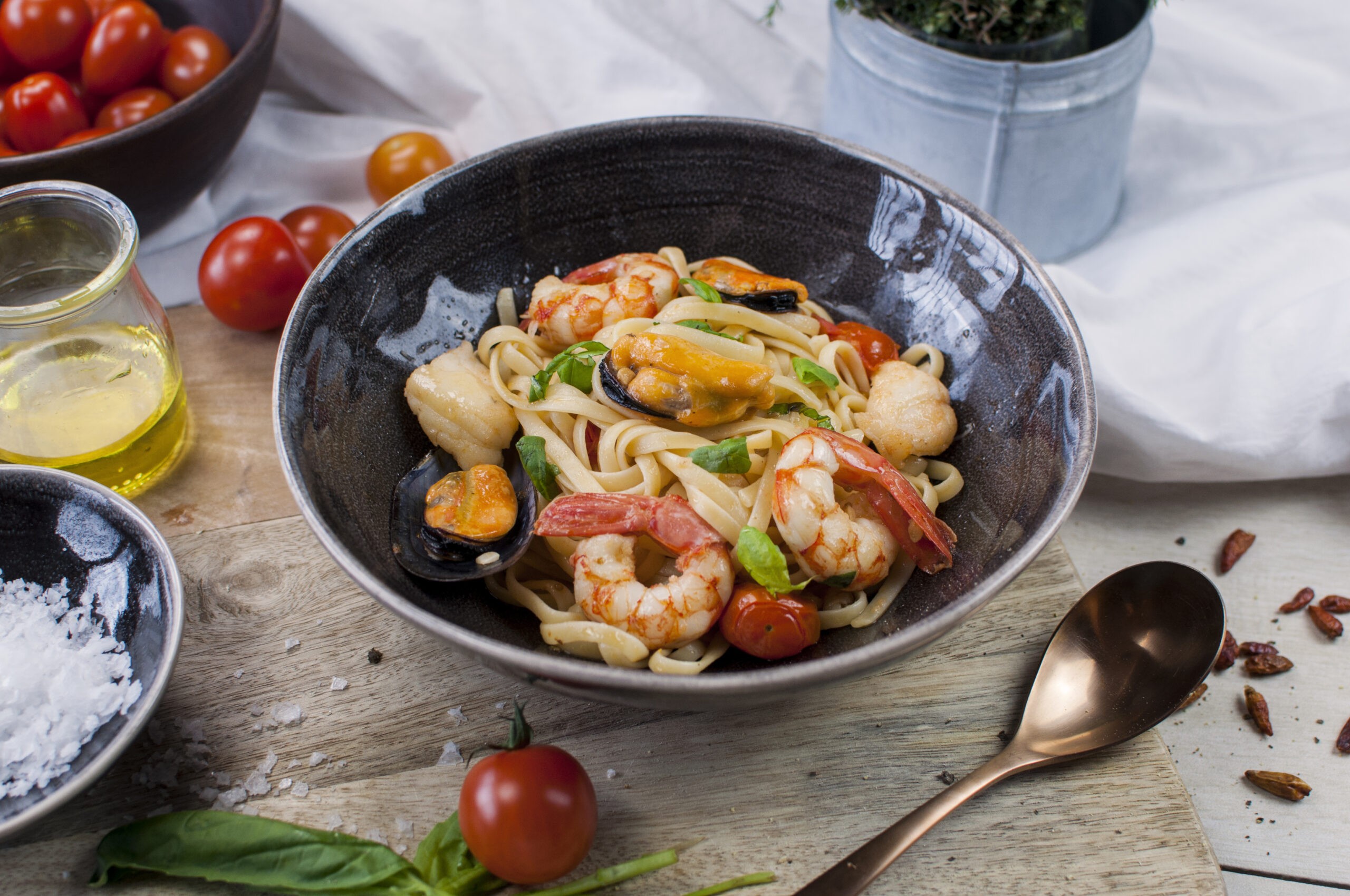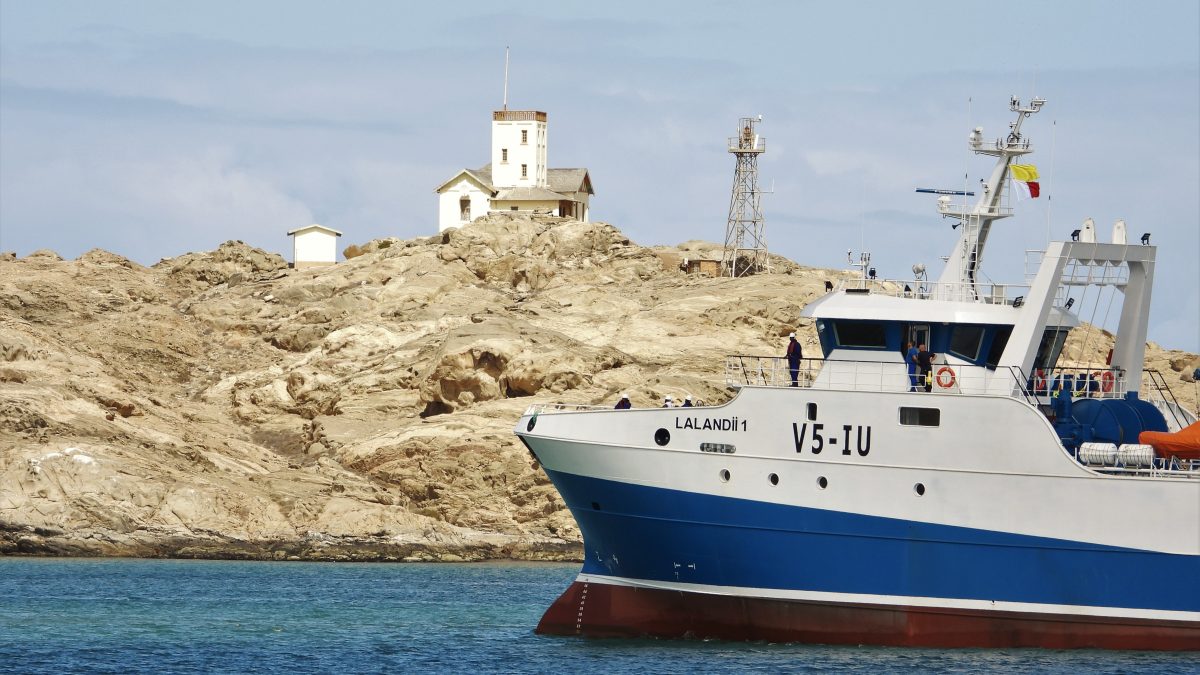Whether you need new trivia questions or you just want to learn about our favorite species, we have a bunch of fun seafood facts for you!
Do you know the top three consumed seafoods in the US? Shrimp, Salmon, and then Tuna. Americans eat over 4 pounds per capita of Shrimp per year.
Argentine Red Shrimp:
- Argentine Red Shrimp have a short reproduction cycle, fully reproducing in 12-16 months, which has enabled a natural sustainability for harvesting.
- The global market for Argentine Red Shrimp has been steadily increasing over the last 10 years.
Vannamei Shrimp:
- Vannamei is the leading farm-raised shrimp species in the Western hemisphere.
- Its wide salt-tolerance range and a rapid growth making it ideal for aquaculture climates.
- White shrimp are carnivorous, feeding on krill, sandworms, mollusks, oysters, and anchovies.
Branzino or Mediterranean Sea Bass:
- Branzino is native to the Mediterranean sea, though they can also be found throughout shallow coastal waters and river mouths as they travel south for the winter into warmer waters.
- They are a night-hunter that feeds on small fish, crustaceans, and fish eggs.
- Mediterranean Sea Bass can grow up to 3 pounds, though it averages 1-2 lbs.
Chilean Sea Bass:
- The Patagonian toothfish was renamed “Chilean Sea Bass” in the 1970s to make it more appealing to customers.
- Chilean sea bass are a long-lived fish not maturing until 10 years of age and possessing a life span of 50 years.
- These fish typically weigh 10-20lbs, though adult toothfish can reach up to 7.5 feet in length and up to 220lbs!
Mahi Mahi:
- The words “Mahi Mahi” translate to “very strong.”
- Mahi Mahi are also called the dolphin fish because they have a large, blunt dolphin-shaped head, and they often swim ahead of ships, like dolphins.
- The dolphin fish is an extremely fast swimmer than can reach speeds of up to 60 mph.
- Mahi-Mahi are a fast-growing, short-lived species reaching maturity within the first year.
- The spawning season for these fish occur 2-3 times a year.
Spanish Octopus:
- An Octopus has no bones.
- They have three hearts: two move blood past the gills while the third keeps circulation flowing to the organs.
- An Octopus has copper-based blood which is more efficient at transporting oxygen and colors their blood blue.
- Their ink causes irritation to predators’ eyes as well as interferes with their sense of taste and smell.
- Octopus arms can react on their own without the brain telling them to becasue 2/3 of its neurons reside in its arms.
Salmon:
- Salmon is known as the “King of Fish.”
- Atlantic salmon are unique in that they’re anadromous, or able to survive in both fresh water and salt water.
- These fish have an amazing sense of smell.
- The Latin root of salmon, means “to leap.”
- Salmon only reproduce once in their lifetime.
Silverside:
- Silverside is a small fish that doesn’t grow more than five inches in length.
- They have a short life-span, only living about 2 years at the maximum.
- Silverside congregate in schools in brackish waters or near sandy, grassy shorelines, where they lay their eggs.
- These fish were named for the wide, silvery stripe on each side of their body.

